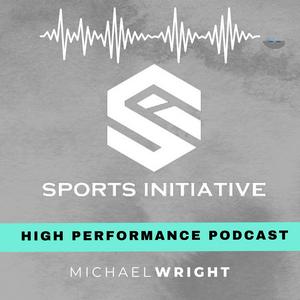217 - Mark Cascio - How decision making is like poker
0:58 - Reflections on Childhood Sports Memories and InfluencesIn a conversation about childhood sports memories, Mark Cascio highlights the significance of moments spent with teammates outside of formal games, recalling how those experiences left lasting impressions. Michael Wright relates a similar story about kids creating their own games during tournaments, reinforcing the idea that such moments are often more memorable than the games themselves. Both speakers reflect on how their early influences, including basketball legends, shaped their passion for the sport.6:54 -Mark Cascio's Coaching Journey and TransformationMark Cascio recounted his journey as a young head coach, initially feeling confident in his basketball knowledge but realizing he needed to learn more about culture and leadership. A conversation with player Chandler Rowe revealed that the team was losing enjoyment in their play style, which led Mark to reassess his coaching approach. He decided to fully commit to a new identity for the team, resulting in unprecedented success.8:17 -Coaching Philosophy and Player DevelopmentMark Cascio reflected on a pivotal moment in his coaching career that reshaped his approach, focusing on player-centered development and high-energy gameplay. Michael Wright highlighted the value of teaching players essential skills to enhance their performance, drawing parallels to effective strategies used by teams like the Spurs and Golden State Warriors. Both emphasized the need for coaches to adapt and innovate in their methods.13:17 -Coaching Impact on Basketball ExperienceMichael Wright pointed out that while US athletes have a shorter competitive span, UK players can continue to play and earn money in local leagues after college. Mark Cascio shared his belief that effective coaching can enhance players' love for the game, and he aims to improve coaching practices to positively impact more athletes. He stressed the importance of shaping a better overall experience for players.15:57 -Understanding Trade-offs in CoachingIn their conversation, Michael Wright and Mark Cascio explore the common challenges coaches encounter, particularly the struggle to eliminate ineffective strategies. Mark stresses that simplicity and clarity lead to better performance, while Michael reinforces the idea that successful coaching involves understanding trade-offs. They both agree that coaches must be comfortable with their decisions, even if it means sacrificing certain aspects of play.19:55 -Coaching Philosophy and Behavioral Change StrategiesMark Cascio shared insights into his coaching philosophy, likening decision-making to poker, where informed choices are essential. He explained the structure of his support for coaches, which includes courses, community engagement, and direct consulting. Cascio highlighted the importance of self-awareness in coaching and the need for coaches to arrive at their own conclusions through guided questioning.29:06 -Feedback and Growth in Coaching PracticesMark Cascio described his practice of soliciting feedback from his team about his leadership qualities, specifically focusing on areas where he could improve, such as impatience. He highlighted the value of creating an open environment where players feel comfortable providing feedback.38:04 -Trends in Basketball Coaching and Player DevelopmentMark Cascio highlights the need for a transformation in basketball coaching, advocating for a games and constraint-led approach rather than traditional drills. He notes that many young players today focus on individual training instead of playing games, which limits their development. Michael Wright points out the differences in play culture between the U.S. and England, where structured play has decreased. Hosted on Acast. See acast.com/privacy for more information.


